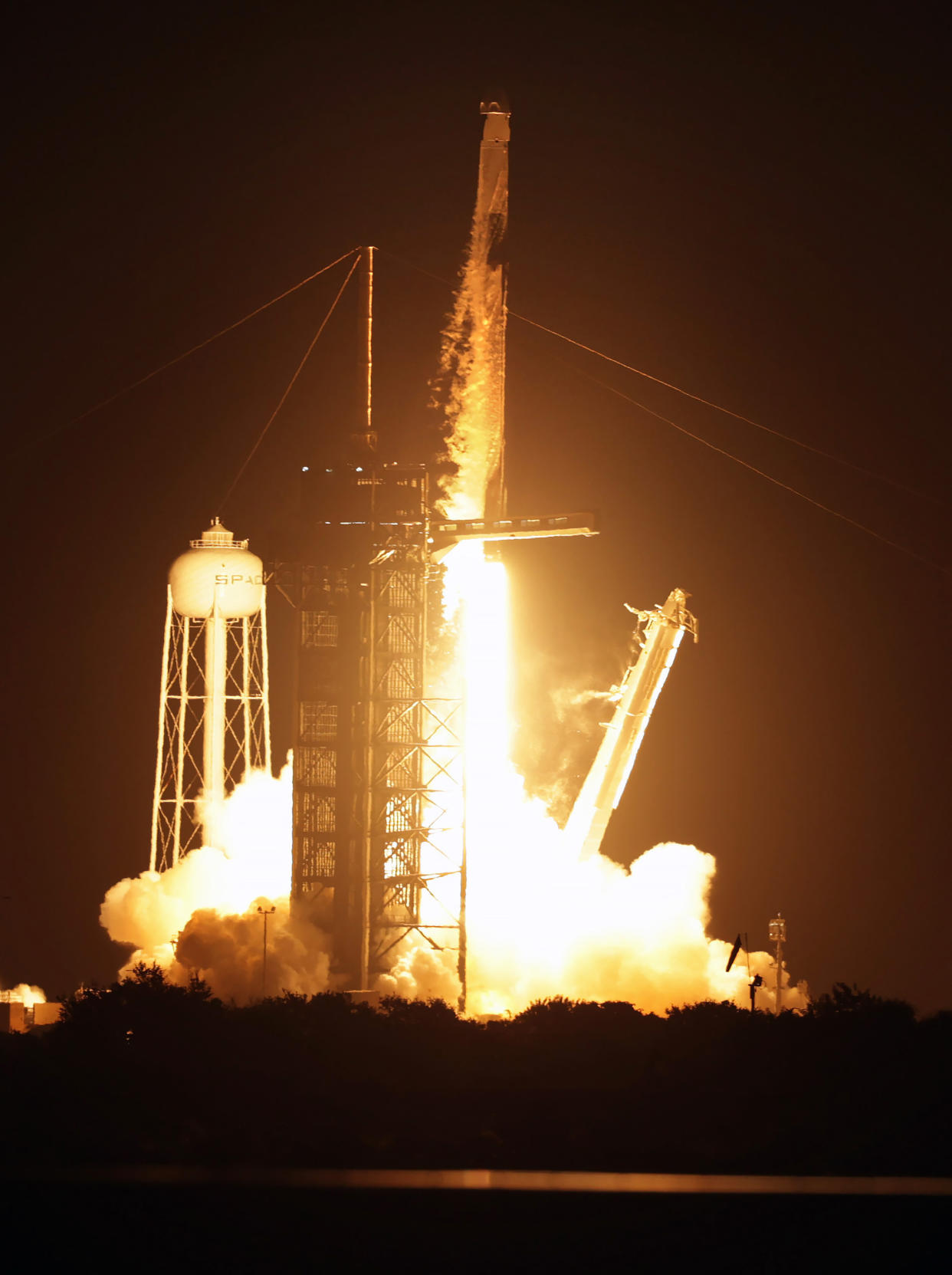New type of SpaceX rideshare launch tonight could bring sonic boom to Central Florida

A new type of SpaceX rideshare program is set for its first launch from the Space Coast on Sunday evening, and will feature a land recovery of its first-stage booster that could bring a sonic boom to Central Florida.
A Falcon 9 rocket on the Bandwagon-1 mission carrying 11 spacecraft to a mid-inclination orbit is set to lift off from Kennedy Space Center’s Launch Pad 39-A at 7:16 p.m. Eastern with a backup window on Monday at the same time.
Space Launch Delta 45’s weather squadron gives a better than 95% chance for good conditions for both Sunday and Monday’s opportunities.
This is the 14th flight of the first-stage booster, which will aim for a recovery landing about eight minutes after liftoff at nearby Cape Canaveral Space Force Station’s Landing Zone 1.
SpaceX warns one or more sonic booms might be heard and felt in Brevard, Orange, Osceola, Indian River, Seminole, Volusia, Polk, St. Lucie, and Okeechobee counties depending on weather and other conditions.
SpaceX has flown 10 rideshare flights under its Transporter program, but those go to sun-synchronous orbit, which is at about 90 degrees inclination to the Earth. The new Bandwagon program aims to send satellites to a 45-degree inclination at a range of 341-372 miles altitude.
This is the first of two Bandwagon flights planned in 2024 with another pair on the books for 2025. Transporter missions fly about every four months and SpaceX offers rideshares on its other dedicated flights to whatever orbits those missions fly.
Putting its foot into the mid-inclination pool could threaten the small rocket launch service provider market. Those rockets, such as Rocket Lab’s Electron, are called on to offer the more targeted satellite insertion, but can only fly smaller payloads.
One of the 11 satellites flying on Bandwagon-1 is Capella Space’s Capella-14 satellite. The move to SpaceX came after a Rocket Lab launch last year lost its Capella payload.
This is the 24th launch from the Space Coast in 2024, with all but one coming from SpaceX.
United Launch Alliance had the lone other launch with its new Vulcan Centaur back in January, but it’s set to fly its second of the year on Tuesday afternoon when it launches the final Delta IV Heavy rocket ever from Canaveral’s Space Launch Complex 37 on the NROL-70 mission for the National Reconnaissance Office targeting liftoff at the opening of a four-hour window at 12:53 p.m. Eastern.
_____

